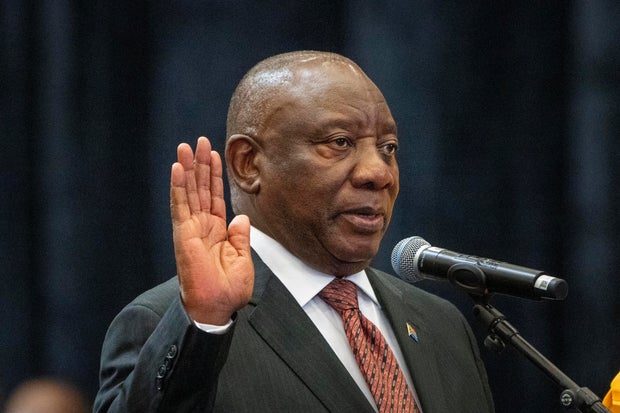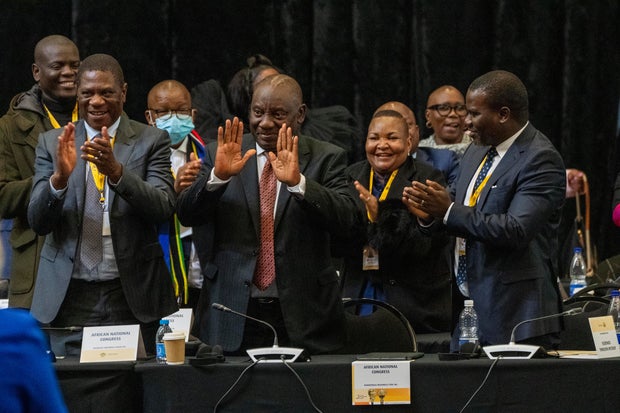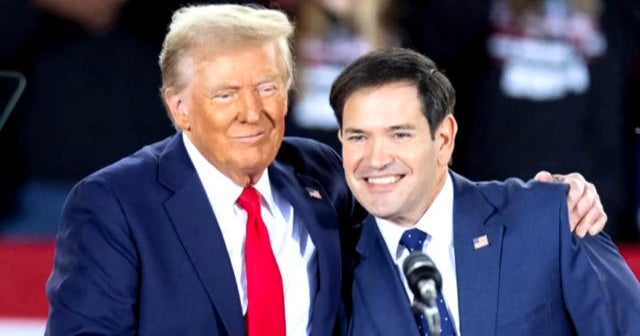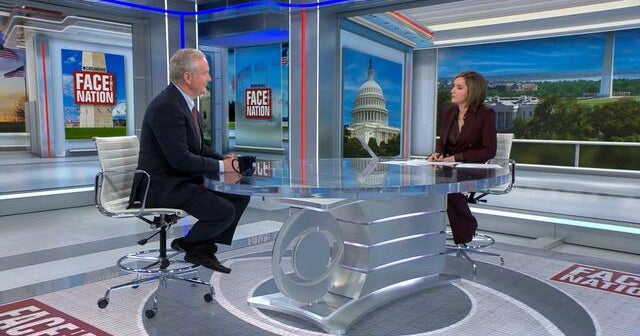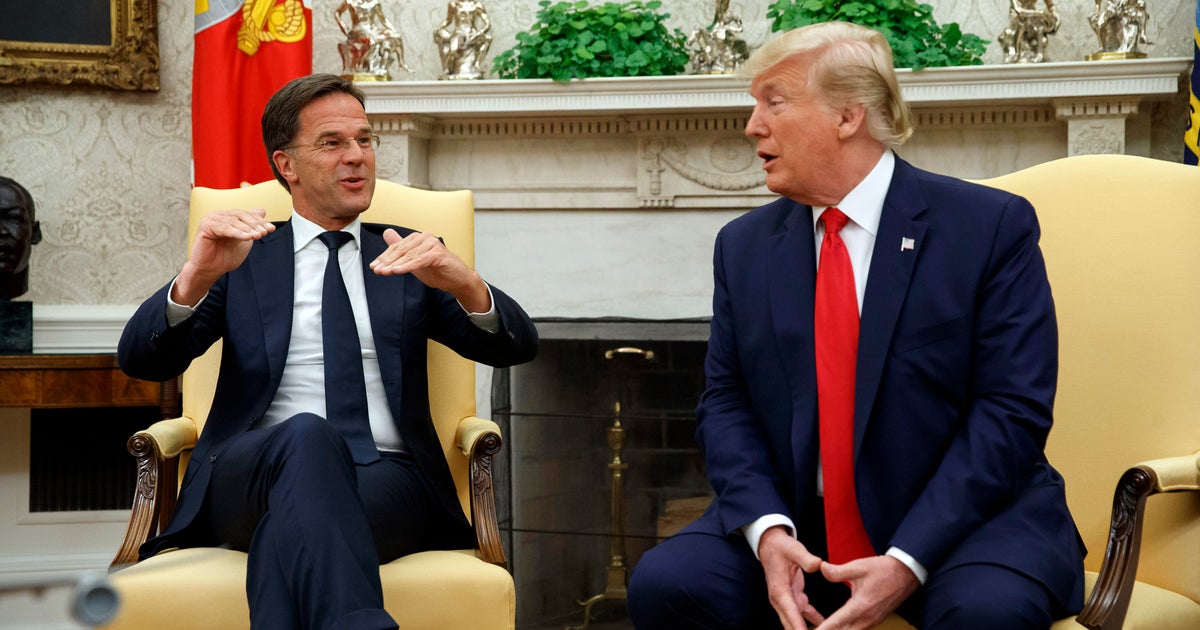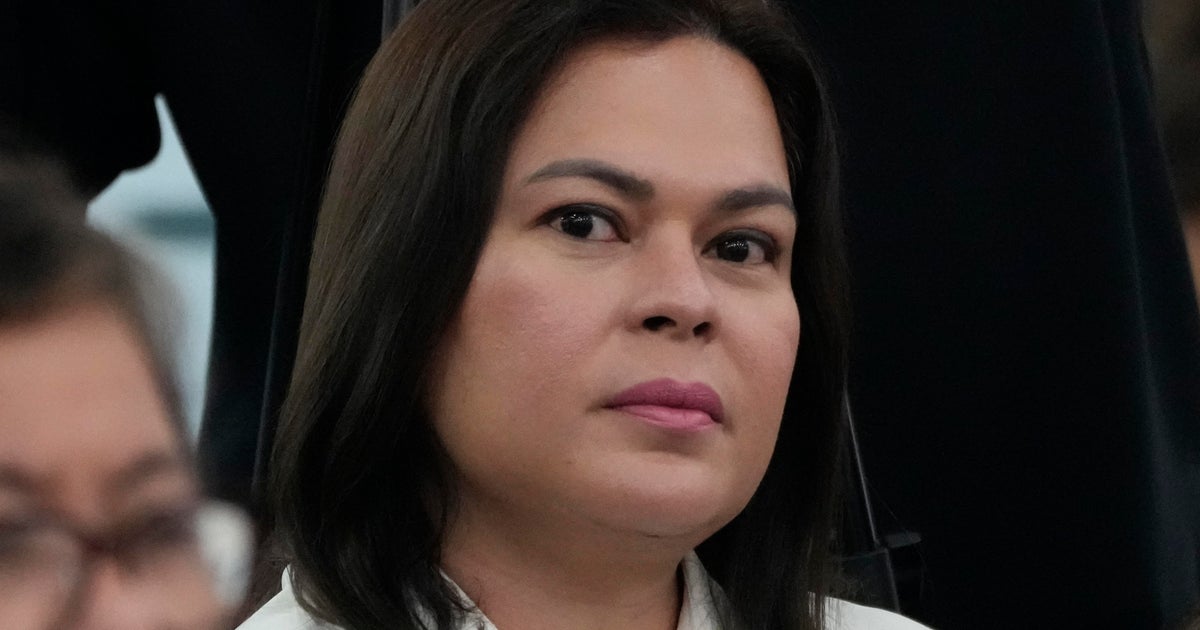CBS News
South Africa reelects President Cyril Ramaphosa after dramatic coalition deal

South African President Cyril Ramaphosa was reelected by lawmakers for a second term on Friday, after his party struck a dramatic late coalition deal with a former political foe just hours before the vote.
Ramaphosa, the leader of the African National Congress, won convincingly in Parliament against a surprise candidate who was also nominated — Julius Malema of the far-left Economic Freedom Fighters. Ramaphosa received 283 votes to Malema’s 44 in the 400-member house.
The 71-year-old Ramaphosa secured his second term with the help of lawmakers from the country’s second biggest party, the Democratic Alliance, and some smaller parties. They backed him in the vote and got him over the finish line following the ANC’s loss of its long-held majority in a landmark election two weeks ago that reduced it to 159 seats in Parliament.
During a break in what turned out to be a marathon parliamentary session, the ANC signed the last-minute agreement with the DA, effectively ensuring Ramaphosa stays on as the leader of Africa’s most industrialized economy. The parties will now co-govern South Africa in its first national coalition where no party has a majority in Parliament.
Jerome Delay / AP
The deal, referred to as a government of national unity, brings the ANC together with the DA, a white-led party that had for years been the main opposition and the fiercest critic of the ANC. At least two other smaller parties also joined the agreement.
Ramaphose called the deal — which sent South Africa into uncharted waters — a “new birth, a new era for our country” and said it was time for parties “to overcome their differences and to work together.”
“This is what we shall do and this is what I am committed to achieve as the president,” he said.
The ANC — the famed party of Nelson Mandela — had ruled South Africa with a comfortable majority since the end of the apartheid system of white minority rule in 1994.
But it lost its 30-year majority in the humbling national election on May 29, a turning point for the country. The vote was held against the backdrop of widespread discontent from South Africans over high levels of poverty, inequality and unemployment.
Analysts warn there might be complications ahead, though, given the starkly different ideologies of the ANC, a former liberation movement, and the centrist, business-friendly DA, which won 21% of the vote in the national election, the second largest share behind the ANC’s 40%.
For one, the DA disagreed with the ANC government’s move to accuse Israel of genocide in Gaza in a highly sensitive case at the United Nations’ top court.
The DA leader John Steenhuisen was the first to confirm the agreement.
“From today, the DA will co-govern the Republic of South Africa in a spirit of unity and collaboration,” he said as he stepped away from Friday’s proceedings for a speech carried live on television in which he said a deal was signed and that the DA lawmakers would vote for Ramaphosa for president.
The Parliament session started at 10 a.m. in the unusual setting of a conference center near Cape Town’s waterfront, after the city’s historic National Assembly building was gutted in a fire in 2022. The house first went through the hourslong swearing-in of hundreds of new lawmakers and electing a speaker and a deputy speaker.
The vote for president started late at night, with the results announced well after 10 p.m. Ramaphosa finished his acceptance speech as the clock ticked past midnight and into Saturday.
Former President Jacob Zuma’s MK Party boycotted the session but that did not affect the voting as only a third of the house is needed for a quorum.
Jerome Delay / AP
ANC Secretary-General Fikile Mbalula said the party was open to talking with anyone else who wanted to join the unity government. There are 18 political parties represented in Parliament and he said the multi-party agreement would “prioritize the country across the political and ideological divide.”
Some parties, including Malema’s EFF, refused to join.
The two other parties that joined the coalition deal were the Inkatha Freedom Party and the Patriotic Alliance, which has drawn attention partly because its leader, Gayton McKenzie, served a prison sentence for bank robbery.
McKenzie said he had been given a second chance in life and that South Africa also had one now, a chance to solve its deep socioeconomic problems.
The ANC had faced a deadline to strike a coalition agreement as Parliament had to vote for the president within 14 days after election results were declared on June 2. The ANC had been trying to strike a coalition agreement for two weeks and the final negotiations went on overnight Thursday to Friday, party officials said.
South Africa has not faced that level of political uncertainty since the ANC swept to power in the 1994 first all-race election that ended nearly a half-century of racial segregation. Since then, every South African leader has come from the ANC, starting with Mandela.
The new unity government also harked back to the way Mandela, South Africa’s first Black president, invited political opponents to be part of a unity government in 1994 in an act of reconciliation when the ANC had a majority. Ramaphosa had played a key role in those negotiations as a young politician.
This time, the ANC’s hand was forced.
“The ANC has been very magnanimous in that they have accepted defeat and have said, ‘let’s talk,'” PA leader McKenzie said.
CBS News
Former Trump national security adviser says next couple months are “really critical” for Ukraine
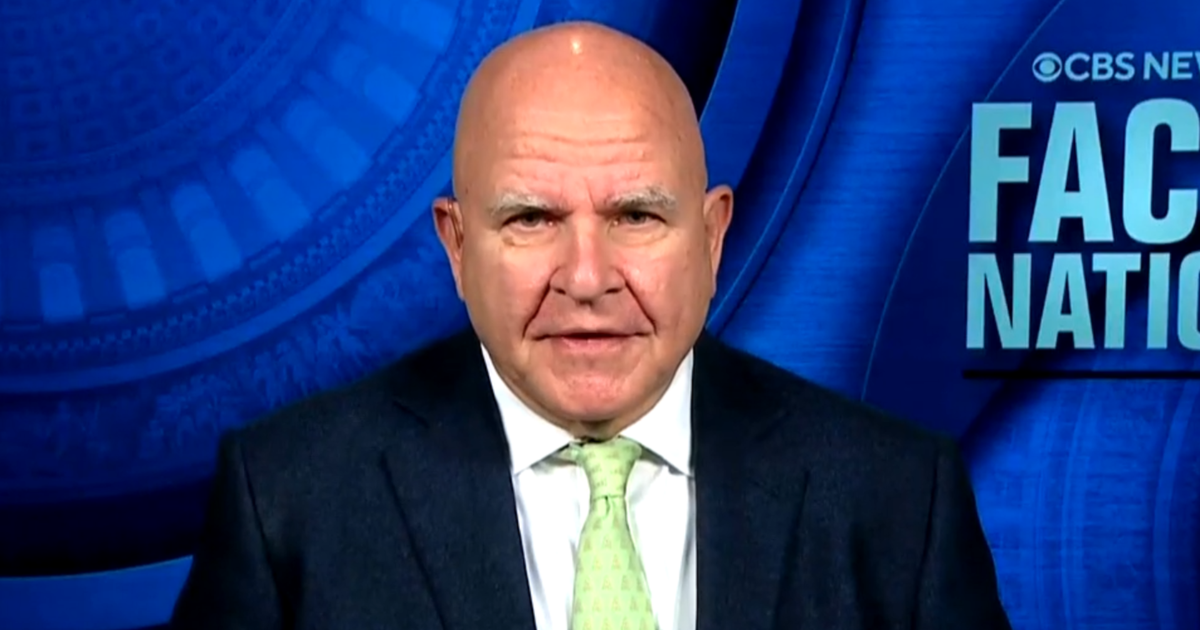
Washington — Lt. Gen. H.R. McMaster, a former national security adviser to Donald Trump, said Sunday that the upcoming months will be “really critical” in determining the “next phase” of the war in Ukraine as the president-elect is expected to work to force a negotiated settlement when he enters office.
McMaster, a CBS News contributor, said on “Face the Nation with Margaret Brennan” that Russia and Ukraine are both incentivized to make “as many gains on the battlefield as they can before the new Trump administration comes in” as the two countries seek leverage in negotiations.
With an eye toward strengthening Ukraine’s standing before President-elect Donald Trump returns to office in the new year, the Biden administration agreed in recent days to provide anti-personnel land mines for use, while lifting restrictions on Ukraine’s use of U.S.-made longer range missiles to strike within Russian territory. The moves come as Ukraine marked more than 1,000 days since Russia’s invasion in February 2022.
Meanwhile, many of Trump’s key selection for top posts in his administration — Rep. Mike Waltz for national security adviser and Sens. Marco Rubio for secretary of state and JD Vance for Vice President — haven’t been supportive of providing continued assistance to Ukraine, or have advocated for a negotiated end to the war.
CBS News
McMaster said the dynamic is “a real problem” and delivers a “psychological blow to the Ukrainians.”
“Ukrainians are struggling to generate the manpower that they need and to sustain their defensive efforts, and it’s important that they get the weapons they need and the training that they need, but also they have to have the confidence that they can prevail,” he said. “And any sort of messages that we might reduce our aid are quite damaging to them from a moral perspective.”
McMaster said he’s hopeful that Trump’s picks, and the president-elect himself, will “begin to see the quite obvious connections between the war in Ukraine and this axis of aggressors that are doing everything they can to tear down the existing international order.” He cited the North Korean soldiers fighting on European soil in the first major war in Europe since World War II, the efforts China is taking to “sustain Russia’s war-making machine,” and the drones and missiles Iran has provided as part of the broader picture.
“So I think what’s happened is so many people have taken such a myopic view of Ukraine, and they’ve misunderstood Putin’s intentions and how consequential the war is to our interests across the world,” McMaster said.
On Trump’s selections for top national security and defense posts, McMaster stressed the importance of the Senate’s advice and consent role in making sure “the best people are in those positions.”
McMaster outlined that based on his experience, Trump listens to advice and learns from those around him. And he argued that the nominees for director of national intelligence and defense secretary should be asked key questions like how they will “reconcile peace through strength,” and what they think “motivates, drives and constrains” Russian President Vladimir Putin.
Trump has tapped former Rep. Tulsi Gabbard to be director of national intelligence, who has been criticized for her views on Russia and other U.S. adversaries. McMaster said Sunday that Gabbard has a “fundamental misunderstanding” about what motivates Putin.
More broadly, McMaster said he “can’t understand” the Republicans who “tend to parrot Vladimir Putin’s talking points,” saying “they’ve got to disabuse themselves of this strange affection for Vladimir Putin.”
Meanwhile, when asked about Trump’s recent selection of Sebastian Gorka as senior director for counterterrorism and deputy assistant to the president, McMaster said he doesn’t think Gorka is a good person to advise the president-elect on national security. But he noted that “the president, others who are working with him, will probably determine that pretty quickly.”
CBS News
Sen. Van Hollen says Biden is “not fully complying with American law” on Israeli arms shipments

Watch CBS News
Be the first to know
Get browser notifications for breaking news, live events, and exclusive reporting.
CBS News
Rep.-elect Sarah McBride says “I didn’t run” for Congrees “to talk about what bathroom I use”
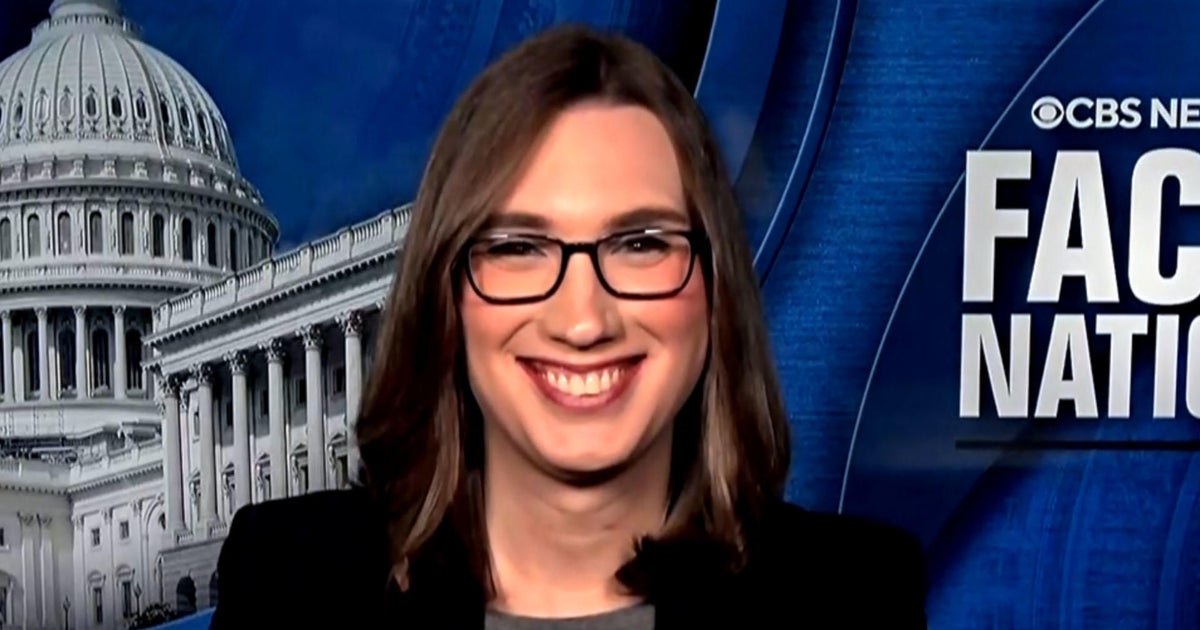
Watch CBS News
Be the first to know
Get browser notifications for breaking news, live events, and exclusive reporting.


